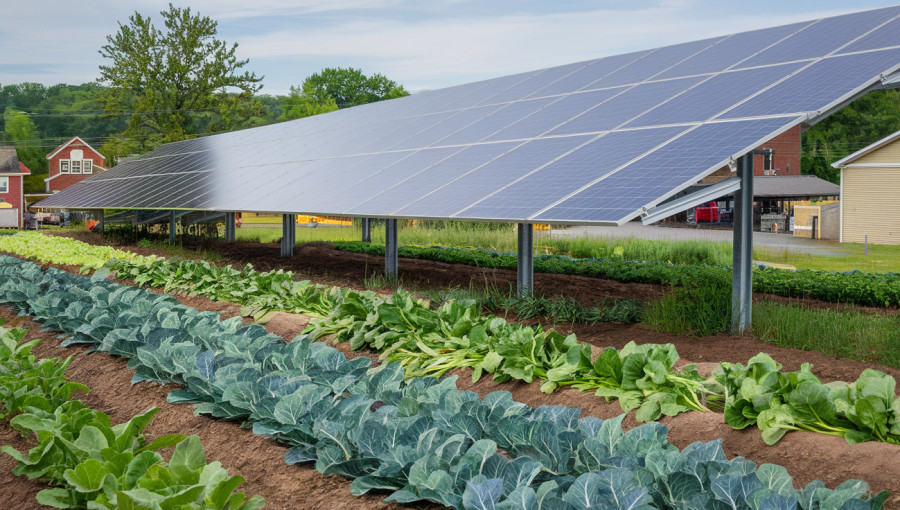In Loudoun County, Virginia, a unique demonstration project aims to blend agriculture and solar energy in a way never seen before in the state. Established by the Piedmont Environmental Council on a community farm maintained by local residents for over a decade, this agrivoltaics initiative integrates solar panels with vegetable farming. The project seeks to show that large-scale renewable energy ventures can coexist with farming, especially as demand for energy increases from local data centers.
The Piedmont Environmental Council’s agrivoltaics program occupies a quarter-acre of its eight-acre community farm, combining solar energy generation with vegetable cultivation. Featuring 42 solar panels totaling 17 kilowatts of capacity, the project includes backup batteries and 2,000 square feet dedicated to growing crops. By generating more power than needed for the farm’s operations, it also creates room for future electrification of a greenhouse and an electric vehicle charger. The goal isn’t merely to show scale but to study the impact of the solar panels on soil moisture, crop yield, and potential contamination of produce, aiming for transparency and data-sharing to allay public concerns about the integration of solar technology in agricultural settings.
Currently, Virginia’s landscape for solar energy is growing rapidly, with some land previously used for farming now being repurposed for solar fields. However, many farming advocates express concerns regarding the loss of valuable agricultural land and are increasingly calling for responsible development practices. The agrivoltaics approach could provide an effective compromise, allowing landowners to benefit economically from leasing portions of their properties to solar developers while preserving the ability to cultivate crops. Studies indicate that many farmers are open to solar projects, provided they retain rights to farm the land around and beneath the panels.
As the demonstration project continues, expected outcomes will be published, offering insights into how agrivoltaics might serve as a sustainable solution in Virginia and beyond. Harvesting its first crops this month, the Piedmont Environmental Council intends to release findings in real-time over the coming winter, with comprehensive data becoming available in the next few years. With ongoing research amidst a growing debate around solar energy’s impact on farming, stakeholders hope that this innovative agricultural model will influence future policies and practices in both sectors.
https://www.canarymedia.com/articles/solar/agrivoltaics-crops-virginia-pilot-loudoun

